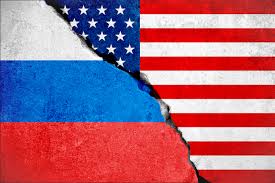New Executive Order Expands Treasury’s Authority to Impose ‘Secondary Sanctions’ on Foreign Financial Institutions Involved in Russian Federation Activities
Alexander J. Cotoia currently serves as the Regulatory Compliance Manager at The Volkov Law Group, where he regularly advises the firm and its clients on the latest developments implicating trade compliance concerns. He may be reached at [email protected].
On December 22, 2023, President Joseph R. Biden, Jr. issued an executive order—”Taking Additional Steps With Respect to the Russian Federation’s Harmful Activities”—that subjects certain foreign financial institutions that continue to conduct or facilitate transactions for, or on behalf of, certain Russian Federation-based actors, to the potential imposition of secondary sanctions.
The new executive order specifically targets foreign financial institutions that have conducted or facilitated “any significant transaction or transactions” on behalf of any person operating in the technology, defense and related materiel, construction, aerospace, or manufacturing sectors of the Russian Federation economy and similarly to any constituent component of the Russian Federation military-industrial base involved in the acquisition of certain “critical items.” The executive order broadly empowers the Secretary of the Treasury—acting in consultation with the Secretary of State and Secretary of Commerce—to designate entities continuing to provide critical financial support to Russia’s military efforts as objects of both full blocking sanctions and restrictions on maintaining correspondent and payable-through accounts (“CAPTA”) in the United States.

Simultaneously, the new executive order lays the framework for the expansion of existing prohibitions pertaining to the importation of Russian Federation-origin commodities, including diamonds and seafood. While current restrictions prohibit the import of certain Russian Federation-origin commodities on a direct basis, a loophole exists that arguably permits commodities originating from the Russian Federation, and subsequently modified in other countries, to be imported legally to the United States. The new executive order attempts to correct this deficiency by permitting the Secretary of the Treasury to categorically prohibit the import and entry of any category of products “mined, extracted, produced, or manufactured wholly or in part in the Russian Federation, or harvested in waters under the jurisdiction of the Russian Federation or by Russia-flagged vessels.”
Concomitant with the issuance of the new executive order, the U.S. Department of the Treasury’s Office of Foreign Assets Control (“OFAC”) released a sanctions advisory outlining the circumstances under which foreign financial institutions could be subject to secondary sanctions. Such circumstances include:
- Maintaining accounts, transferring funds, or providing other financial services (i.e., payment processing, trade finance, insurance) for any persons designated for operating in the specified sectors;
- Maintaining accounts, transferring funds, or providing other financial services (i.e., payment processing, trade finance, insurance) for any persons, either inside or outside Russia, that support Russia’s military-industrial base, including those that operate in the specified sectors of the Russian Federation economy;
- Facilitating the sale, supply, or transfer, directly or indirectly, of critical items to Russian importers or companies shipping the items to Russia; and
- Helping companies or individuals evade U.S. sanctions on Russia’s military-industrial base by: (a) offering to set up alternative or non-transparent payment mechanisms; (b) changing or removing customer names or other relevant information from payment fields; (c) obfuscating the true purpose of or parties involved in payments; or (d) otherwise taking steps to hide the ultimate purpose of transactions to evade sanctions regulations.
To mitigate the potential that foreign financial institutions could be subject to secondary sanctions, the sanctions advisory strongly encourages such institutions to rely on standard customer due diligence procedures to identify those engaged in high-risk activity, clearly communicate compliance expectations, and restrict or altogether frustrate the ability of the highest risk customers to utilize the financial institution in question for suspect transactions. Foreign financial institutions are also encouraged to update both sanctions risk ratings and customer risk rating criteria and to leverage “open-source information and past transactional activity” to inform customer due diligence and conduct investigations into potential cases of sanctions or export control evasion. Finally, such institutions are encouraged to carefully review “A Framework for OFAC Compliance Commitments” for guidance on the implementation of best practices and other essential components of a risk-based sanctions compliance program.
The issuance of the new executive order should serve as a stark warning to any foreign financial institution intent on maintaining valuable U.S. CAPTA banking relationships that compliance with Russian Federation sanctions is mandatory. As the Russian Federation’s war in Ukraine continues, the pressure on foreign entities and individuals to broadly comply with U.S. sanctions and export controls is only likely to increase. Foreign financial institutions that turn a blind eye to compliance with U.S. sanctions regulations risk becoming a proverbial test case for the imposition of full blocking sanctions and CAPTA restrictions under the aegis of the new executive order.















